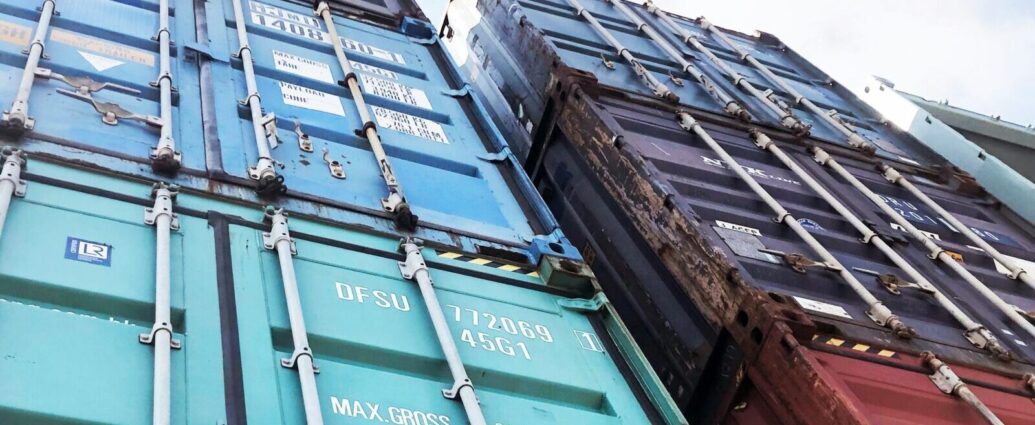Jennifer Pinto
Houthi rebel attacks on commercial shipping vessels and cargo ships in the Red Sea are causing massive disruption to global trade and supply chains, according to a leading maritime organisation.
The Houthi group, backed by Iran, have recently attacked commercial ships in support of Hamas in the Red Sea, one of the world’s busiest routes.
Shipping firms have had to reroute away from the usual passages through the Suez Canal and the Red Sea by taking a much longer route around the Cape of Good Hope, which has added at least 10 days to shipping times.
Ms Natasha Brown, a spokesperson for the International Maritime Organisation, told Empoword: “These attacks have been strongly condemned by IMO Secretary-General Arsenio Dominguez.”
“IMO has taken every opportunity to raise the concern about seafarers and shipping from these illegal and unjustifiable attacks.”
INTERNATIONAL MEASURES
The Maritime Safety Committee, which covers maritime security matters, has adopted a resolution calling for an end to these attacks. On 27 June, the UN Security Council adopted Resolution 2739 (2024) demanding “that the Houthis immediately cease all attacks against merchant and commercial vessels and immediately release the M/V Galaxy Leader and its crew.”
Brown said implementing maritime security measures and best management practices are important in high-risk areas, including additional lookouts.
She told Empoword: “Ultimately, these attacks must stop to minimise disruption.
“Shipping should be able to trade without interference.”
Brown noted that, ultimately, these costs can be transferred to customers and that the IMO Secretary-General is raising the issue and reporting to the UN Secretary-General for the UN Security Council discussions on this matter.
“We have to recognise that more, longer voyages can mean increased emissions from ships overall.”
She said that the governments and relevant organisations need to provide maximum assistance to affected seafarers and spare no effort in resolving this crisis, telling Empoword: “This situation cannot go on.”
“Everybody is going to feel the negative effect if international shipping is not able to trade as normal, but our commitment is, above all, safeguarding the safety of all seafarers.
“We have to recognise that more, longer voyages can mean increased emissions from ships overall, which is beyond the control of individual companies.
“Ships can take measures operationally to enhance energy effect, and ultimately, the safety of shipping and seafarers has to come first,” Brown said.
CLIMATE CONCERNS
The IMO is committed to reducing GHG emissions from shipping, aiming for net-zero emissions by 2050 or close to it.
Building on existing mandatory measures for energy-efficient ship design and operation, Brown told Empoword that the IMO is developing a GHG fuel intensity standard and an economic pricing mechanism, which is expected to be adopted in late 2025 and enforced by 2027.
Efforts are underway to support states, especially developing ones, in implementing these measures and exploring emission-cutting technologies.
Brown recommends speed optimisation as an operational measure to improve energy efficiency, and planning for just-in-time port arrivals can further reduce emissions.
Brown also mentioned keeping the hull clean, voyage planning, and weather routing. The IMO said that technologies like wind propulsion and solar power can help reduce fuel use.
The IMO’s goal-based energy efficiency requirements allow ships and operators to choose how to meet performance targets.
While longer voyages may affect the short term, the IMO’s long-term goal remains unchanged. Brown confirmed that the pathway is towards zero fuels and technology and ensured this transition will happen.
The IMO said ships can take many steps to improve energy efficiency, and these technologies can significantly reduce shipping’s energy demand. However, low—and zero-carbon fuels will be needed to decarbonise shipping.
Holi warned of supply chain disruption as ships avoid the Red Sea. Tesla, for example, previously announced the suspension of its factory and January 29 to February production near Berlin from January 11 due to delays in supply chains caused by the disruption in global shipping.
“The attacks have severely impacted Red Sea shipping, causing a 90 per cent decline in container shipping.”
Maersk, a shipping company fronted in Copenhagen, announced it had stopped operations in the Red Sea indefinitely due to the situation, which has led to a rise in container rates and concerns over inflation.
The longer route around the Cape of Good Hope increases shipping times and leads to higher fuel consumption and CO2 emissions, exacerbating climate change.
The end of the emission-reducing practice of “slow steaming,” where ships reduce speeds to save fuel, is a major concern.
With the longer journey, ships increase their speeds to compensate for the added distance, increasing CO2 emissions.
The Houthis, who are based in Yemen, have carried out over 60 attacks since November, resulting in four sailors’ deaths, one vessel seizure, and two sinkings.
“global trade fell by 1.3 per cent from November to December 2023, and the number of containers shipped through the Red Sea fell from 500,000 to 200,000“
The US has partnered with international partners, including the UK, sending aircraft carriers and airstrikes.
The attacks have severely impacted Red Sea shipping, causing a 90 per cent decline in container shipping.
According to the Kiel Trade Indicator, global trade fell by 1.3 per cent from November to December 2023, and the number of containers shipped through the Red Sea fell from 500,000 to 200,000.
READ NEXT:
-
US HUMANITARIAN AID SHIP BOUND FOR GAZA FROM CYPRUS DELAYED
-
BULGARIA AND ROMANIA PARTIALLY JOIN EUROPE’S SCHENGEN AREA
-
FRANCE TO DEBATE THE INTRODUCTION OF MEDICALLY ASSISTED DEATH
Featured image courtesy of OSG Containers on Unsplash. No changes made to this image. Image license found here.

